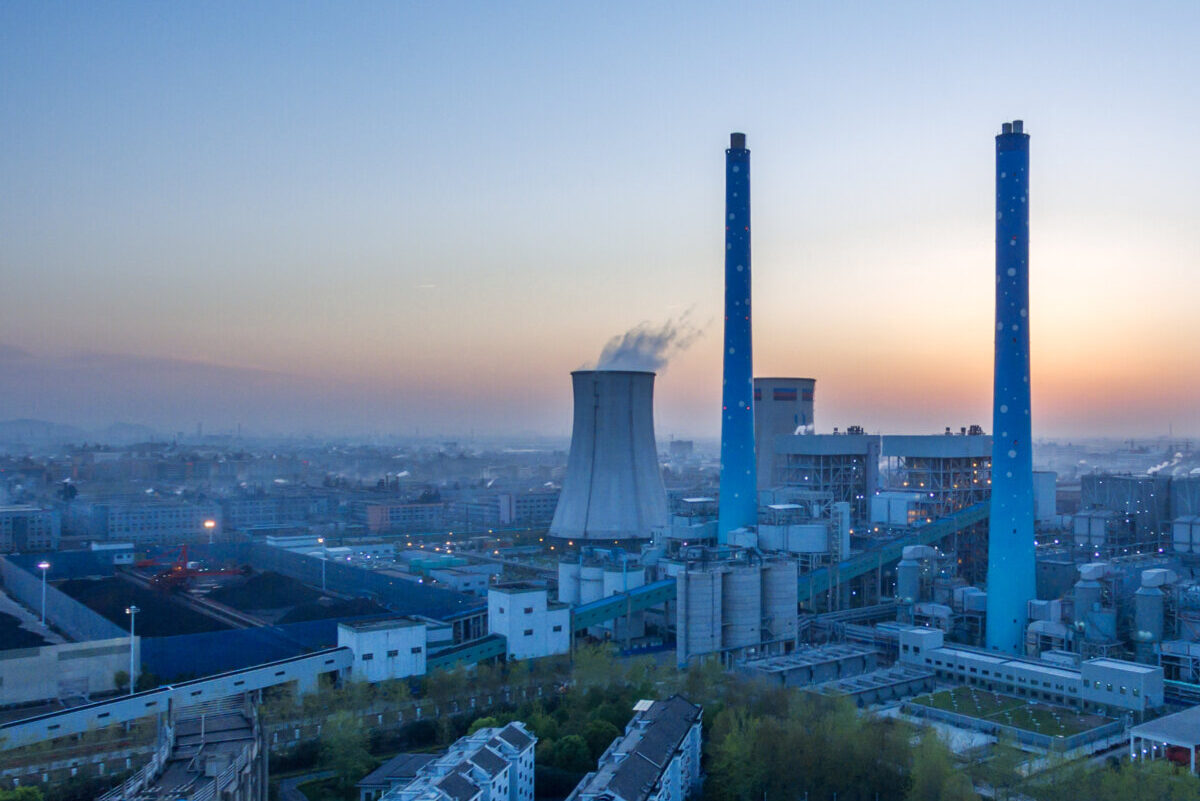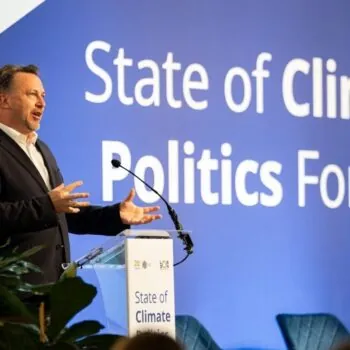The prospect of Xi Jinping leading China for another decade has led to a flood of commentary, strategy reviews and policy shifts in Western countries. Despite this, there is an absence of serious engagement with the most pressing global security issue shaped by China: climate change.
As the world’s largest carbon emitter, it already has higher per capita emissions than Europe. While its military expenditure is only a fifth of NATO’s; its greenhouse gas emissions are equal to all OECD countries combined. Stabilising climate change is impossible without radical action from China.
This matters to Western security and prosperity. The climate is already destabilised, with climate-driven disasters happening far earlier than predicted even 5 years ago. The US, Europe and Japan all saw serious climate disasters in 2021, exposing their lack of systemic resilience. Every further temperature rise intensifies impacts.
We need a radically reformed international system to manage the stresses of a climate-changed future. To deliver net zero, global economic, technological, trade, financial and agricultural systems need fundamental change in the next decade. These cannot be separated from geostrategic strategies on “friend-shoring”, critical-technology restrictions, investment screening and standard setting and infrastructure investment competition.
No Western power measures its China strategy against delivering an orderly and rapid climate transition. Despite US and European leaders acknowledging climate change as an existential threat, it features peripherally as a last resort for cooperation. This is a catastrophic error.
Climate action has implications everywhere; from supply-chain resilience to third-country alliances. Sometimes interests will align, and sometimes they will lead to competition and tensions. Engagement does not require “concessions” on human rights or values-based issues. China needs a stable climate to deliver development goals. It is technically and economically able to move more rapidly towards net zero; the barriers are political. Chinese leadership knows it is exposed to climate instability and food insecurity but worries about energy security and social instability, replacing a coal sector that employs 4 million.
Western strategies must shape the political environment to increase the likelihood that China will act to preserve our interests. A world fragmented by political and economic competition won’t deploy clean technology and capital fast enough.
UN climate talks must avoid the sparring seen between the US and China at COP26 and has since seen climate dialogues frozen over Taiwan. The UN system must reform and strengthen on food security, resilience and disaster response, with a greater role for the Security Council to manage growing climate shocks.
The rapid shift to clean energy is disruptive as countries seek supply chain security, gaining renewables, batteries and electric vehicles advantages. Competition is inevitable, and may even accelerate climate action, but must be managed so it doesn’t fragment and disrupt markets. Major economies must work with China through the WTO to manage tensions, maintaining open markets to reduce costs and make rapid net zero transitions more affordable for all.
China and the US must align around immediate reforms of the global financial system to release the capital needed to finance the transition in burdened emerging and developing economies. The “Bridgetown Agenda” from the Prime Minister of Barbados gives a blueprint for action.
Clean infrastructure investment in developing countries requires a seven-fold increase in the next decade. China is key, building on experience and capacity from the Belt and Road and investing alongside initiatives launched by others. Common standards for co-investment would allow recipient countries to choose based on price and quality, not geopolitical alignment.
Resilience, finance, trade and investment are the first areas for ensuring relations support scaled-up climate action. These are mainly win-wins, not requiring huge shifts from either side. Problematic areas include advanced technology transfer and data regulation of smart infrastructure underpinning clean energy.
Parts of the US and China governments are aware these realities but struggle to make them geopolitical priorities. Other countries who see risks of a bifurcated world to their interests, should work with them to place climate centre stage in foreign relations. They should use climate action to rebuild and reinforce networks of messy but vital global cooperation. No major power can achieve strategic goals inside a catastrophically disrupted climate. Preventing this requires unprecedented collective action by all. There is no hegemony on a dead planet.



